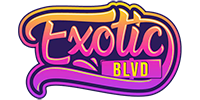4th Circuit Court Rules THC-O Meets Legal Definition Of Hemp, Deviating From DEA

THC-O can be multiple times more potent than delta-9 THC
The U.S. Court of Appeals for the Fourth Circuit ruled Sept. 4 that THC-O acetate, commonly referred to as just THC-O, meets the legal definition of hemp under the 2018 Farm Bill.
This decision refutes the Drug Enforcement Administration’s declaration in a February 2023 letter sent to international cannabis lawyer Rod Kight that THC-O is a Schedule I controlled substance.
THC-O is a semi-synthetic analogue that’s derived from tetrahydrocannabinol (THC)—either from a cannabis or hemp plant—through a chemical process using acetic anhydride, according to renowned cannabis and endocannabinoid researcher Dr. Ethan Russo. THC-O can be multiple times more potent than delta-9 THC, one of the main psychoactive components of cannabis.
Since THC-O is derived from delta-9 or delta-8 THC and does not occur naturally in the cannabis plant, the DEA’s 2023 interpretation is that it does not fall under the definition of hemp.
Similarly, the DEA determined that “all synthetically derived tetrahydrocannabinols,” such as delta-8 THC and THC-O, “remain Schedule I controlled substances” in its Interim Final Rule from August 2020.
To Read The Rest Of This Article On Cannabis Business Times, Click Here








































